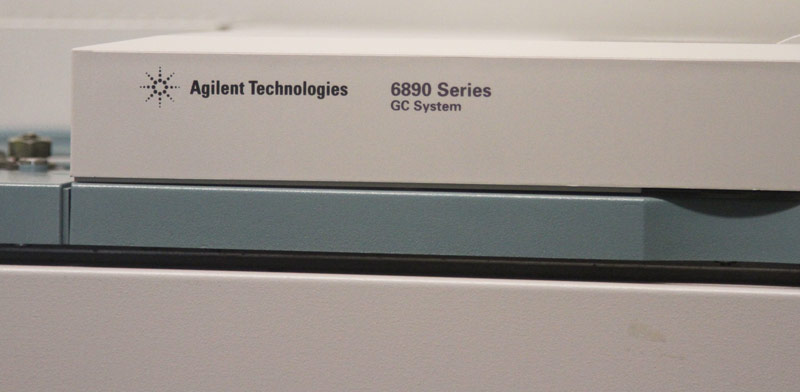
Most of the essential oil production in the world is for the fragrance and flavoring industries, which have a much lower quality standard requirement than aromatherapy. Amrita has its own gas chromatograph machine to ensure that the oils are all-natural, have not been diluted, industrially processed or chemically manipulated. Some essential oil products on the market also include artificial ingredients which are cheaper to produce.
Every one of Amrita’s essential oils has been verified for purity and authenticity by gas chromatography (GC). After 14 years of analyzing essential oils, Christoph emphatically states, "An in-house gas-chromatographic laboratory is an absolute necessity to ensure the purity and effectiveness of essential oils and essential oil products."
Testing every essential oil batch when it arrives, as we do at Amrita, would be cost-prohibitive for an essential oil company that has to rely on an outside GC lab. And spot-testing, or simply relying on vendors’ information, is not sufficient to ensure the purity of the oils. The detection of "nature-identical compounds" of synthetic origin often requires chiral column analysis.
Gas-chromatographic screening of every batch is necessary, therefore, to ensure that the oil has not been cut with alcohol or any other solvent and does not include so-called “nature identical” laboratory-produced compounds.It verifies not only that the oil is 100% natural but also that it is distilled from the correct botanical species, subspecies and chemotype.
Amrita selects only properly distilled, unadulterated, 100% botanical essential oils. We do not accept oils that have been rectified, peroxidized, decolorized, deterpenized, denatured, reconstituted or mixed with other essential oils, lipids, alcohol or other chemical compounds. There is only one exception: One of Amrita’s four eucalyptus oils (Eucalyptus globulus, No. 3422) is moderately rectified. We found that a moderate rectification of Eucalyptus globulus still offers the desired results; however, we also offer the completely unrectified oil. Unfortunately, more than 99% of all eucalyptus oils on the market today are heavily rectified and therefore therapeutically useless.
Furthermore, Amrita uses gas chromatography to verify that every oil contains the necessary chemical profile to ensure its therapeutic usefulness. Sometimes GC testing is the only way to determine the therapeutic value of an essential oil. For example, we do not accept German chamomile oil of the alpha bisabolol oxide chemotype. Although this is the most common variety of German chamomile, from a therapeutic point of view it is fairly useless because it lacks anti-inflammatory properties. In order for chamomile oil to be anti-inflammatory, it needs to contain a significant amount of alpha-bisabolol (rather than the oxide type).
